Traditionalist Issues
 |
 |
 |
 |
 |
 |
 |
Dialogue Mass - CXXII
The Assaults of Francis against ‘Clericalism’
The evidence that we have just examined, taken from among representatives of a broad swathe of Catholic Church leaders, reveals that a war has been declared against “Clericalism” by those who want to eliminate Tradition, and is still going on around us. Their aim was to demean the grandeur of the ordained priesthood in the sense of making it seem not only less important in the Church – and, therefore, undeserving of the deference and respect due to it – but also positively harmful to the rights of the laity – and, therefore, a foe to be strenuously fought against.
Their anti-clerical narrative had been bubbling away for decades after Vatican II in various parts of the world before Pope Francis turned up the heat by embellishing the narrative, as we shall see, with high profile contributions of his own. The result was to cause the lid to come off the simmering pot, spreading a wave of anti-clerical sentiment that gained a momentum and scale beyond anything seen in the time of his immediate predecessors.
It may seem more than a trifle ironic that this highly biased narrative was engendered and spread by progressivist Catholic priests and bishops who, for reasons of their own, were habitually disposed to think ill of their own priesthood. But it is surely the height of paradox that, by promoting anti-clericalism, they were damaging fundamental Catholic values and exposing the faithful to unprotected attack by the enemies of the Faith.
 The obvious conclusion is that, since Vatican II, the neo-modernist clergy are continuing the narrative begun in the 16th century. To prove the concordance of anti-clerical sentiments between then and the present day, we can consult an overview of the situation written by the Fr. Charles Augustus Whittuck, Anglican Vicar of St. Mary’s parish, Oxford, at the turn of the 20th century. He provides a plethora of historical citations from Protestant churchmen against “Clericalism” wherever it is found, whether in the Catholic Church or the Anglican Church.
The obvious conclusion is that, since Vatican II, the neo-modernist clergy are continuing the narrative begun in the 16th century. To prove the concordance of anti-clerical sentiments between then and the present day, we can consult an overview of the situation written by the Fr. Charles Augustus Whittuck, Anglican Vicar of St. Mary’s parish, Oxford, at the turn of the 20th century. He provides a plethora of historical citations from Protestant churchmen against “Clericalism” wherever it is found, whether in the Catholic Church or the Anglican Church.
To take a few examples, these include references to “Clericalism” as
Not just individual words, but whole anti-clerical themes, originating from 16th-century Protestant reformers and perpetuated by their heirs, were appropriated and exploited by progressivist Catholic reformers. It is obvious to all that these themes correspond so closely with the sentiments expressed in the above list, that they are indistinguishable from them.
Indeed, when Pope Francis takes up the same themes, one could be forgiven for thinking that it is a rather fanatical Protestant speaking or else a Catholic neo-modernist, which amounts to the same thing. For, as we shall see, these anti-Catholic themes were first introduced into the Church by the foremost proponent of Modernism at the turn of the 20th century, Fr. George Tyrrell, SJ.
They were suppressed by Pope Pius X, resurrected by the “new theologians” of the mid-20th century, and filtered through the documents of Vatican II, from where they were disgorged onto the Catholic population around the world by the Popes of the Council.
Francis throws in his lot with the neo-modernists
From the beginning of his Pontificate, Pope Francis has been pandering to the prevailing narrative about “Clericalism” coming mainly from clerics with an openly expressed aversion to pre-Conciliar Catholicism in all its manifestations – doctrinal, liturgical, constitutional and sartorial. Not only has Pope Francis enabled the doctored narrative to spread without challenge, but he has facilitated its spread by putting rocket fuel behind it in the form of his personal endorsement.
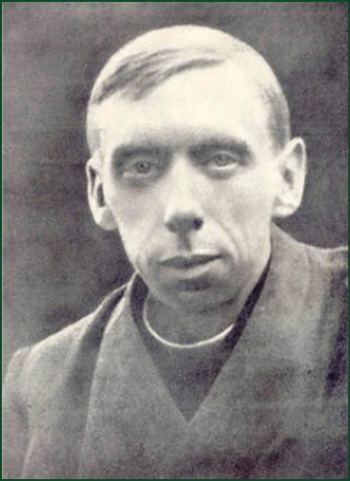 We will now look at some examples of how Pope Francis uses the expression “Clericalism,” noting the exact convergence of his ideas with those of the Protestant, Modernist and current Progressivist views of the Catholic Priesthood which were the subject-matter of the previous articles (here, here,
here and here). We will also note the convergence of these views with those of Fr. George Tyrrell.
We will now look at some examples of how Pope Francis uses the expression “Clericalism,” noting the exact convergence of his ideas with those of the Protestant, Modernist and current Progressivist views of the Catholic Priesthood which were the subject-matter of the previous articles (here, here,
here and here). We will also note the convergence of these views with those of Fr. George Tyrrell.
For convenience, we can group Pope Francis’s ideas into three main categories:
Near the beginning of his pontificate, Pope Francis set out his view of the governing authority of the Bishop in the most negative light, i.e., from the point of view of those who sought power over others and precedence in the Church. He stated:
“It is sad when we see a man who seeks this office and does all he can to get it and when he gets it does not serve, instead struts around and lives only for his vanity.” (2)
That is true as far as it goes, but hardly needs saying, for St. Thomas Aquinas had already expounded the Church’s constant teaching on this matter in more charitable terms:
“[H]e who enters the episcopal state is raised up in order to watch over others, and no man should seek to be raised thus, according to Hebrews (5:4): Neither doth any man take the honor to himself, but he that is called by God; and Chrysostom says: ‘To desire supremacy in the Church is neither just nor useful.’”(3)
But, as always with Pope Francis, his meaning is dependent on the context of his message which, in this instance, favored Collegiality over the individual exercise of a Bishop’s authority in his own Diocese. He stated:
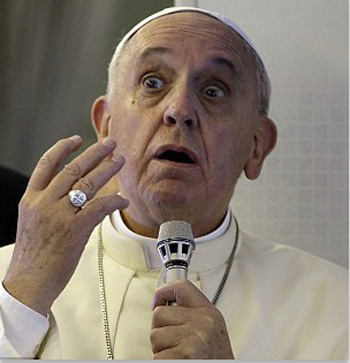 “[B]ishops, with the Pope, express this collegiality and always seek to be better servants to the faithful, better servants in the Church.” (4)
“[B]ishops, with the Pope, express this collegiality and always seek to be better servants to the faithful, better servants in the Church.” (4)
The implication of the message was that the authority of the Bishop must be collegial, not personal and individual – a key point of Vatican II that contradicts the traditional teaching of the Church. And intertwined in this message is the assertion that the Bishop should not rule over, i.e., dominate the faithful, but be their servants.
Again, Pope Francis insists:
“Clericalism arises from an elitist and exclusivist vision of vocation that interprets the ministry received as a power to be exercised rather than as a free and generous service to be given. This leads us to believe that we belong to a group that has all the answers and no longer needs to listen or learn anything. Clericalism is a perversion and is the root of many evils in the Church: We must humbly ask forgiveness for this and above all create the conditions so that it is not repeated. (5)”
None-too-subtle Jesuitical subtleties
No prizes for guessing which members of the Church are being explicitly targeted as holding an “elitist and exclusivist vision of vocation.” They have been many times pilloried by the progressivists, and can be unmistakably identified as the traditionally-formed clergy and those in sympathy with them. Here, they are singled out by Pope Francis for public criticism and denounced as power mongers as well as self-sufficient know-it-alls lacking in any pastoral concern for their flocks.
Continued
Their anti-clerical narrative had been bubbling away for decades after Vatican II in various parts of the world before Pope Francis turned up the heat by embellishing the narrative, as we shall see, with high profile contributions of his own. The result was to cause the lid to come off the simmering pot, spreading a wave of anti-clerical sentiment that gained a momentum and scale beyond anything seen in the time of his immediate predecessors.
It may seem more than a trifle ironic that this highly biased narrative was engendered and spread by progressivist Catholic priests and bishops who, for reasons of their own, were habitually disposed to think ill of their own priesthood. But it is surely the height of paradox that, by promoting anti-clericalism, they were damaging fundamental Catholic values and exposing the faithful to unprotected attack by the enemies of the Faith.

Progressivists are inspired by Protestant reformers in their attacks against the clergy
To take a few examples, these include references to “Clericalism” as
- The “exclusive ascendancy of the clerical order”;
- A “spiritual despotism exercised by a sacerdotal caste”;
- The “self-aggrandizing tendency of the clerical class”;
- Its “assumption of superiority”;
- Its “separatist tendency” and “estrangement from the community”;
- Its promotion of “the exclusive interests of the clergy at the expense of the laity”;
- Its “unsympathetic and unconciliatory tone” (which is now termed “rigidity”);
- Its “blindness to the signs of the times”;
- Its rejection of the “pure Word of God,” i.e., the Gospel (Luther’s thesis);
- A slow “poison” and a “moral disease.” (1)
Not just individual words, but whole anti-clerical themes, originating from 16th-century Protestant reformers and perpetuated by their heirs, were appropriated and exploited by progressivist Catholic reformers. It is obvious to all that these themes correspond so closely with the sentiments expressed in the above list, that they are indistinguishable from them.
Indeed, when Pope Francis takes up the same themes, one could be forgiven for thinking that it is a rather fanatical Protestant speaking or else a Catholic neo-modernist, which amounts to the same thing. For, as we shall see, these anti-Catholic themes were first introduced into the Church by the foremost proponent of Modernism at the turn of the 20th century, Fr. George Tyrrell, SJ.
They were suppressed by Pope Pius X, resurrected by the “new theologians” of the mid-20th century, and filtered through the documents of Vatican II, from where they were disgorged onto the Catholic population around the world by the Popes of the Council.
Francis throws in his lot with the neo-modernists
From the beginning of his Pontificate, Pope Francis has been pandering to the prevailing narrative about “Clericalism” coming mainly from clerics with an openly expressed aversion to pre-Conciliar Catholicism in all its manifestations – doctrinal, liturgical, constitutional and sartorial. Not only has Pope Francis enabled the doctored narrative to spread without challenge, but he has facilitated its spread by putting rocket fuel behind it in the form of his personal endorsement.

Fr. George Tyrrell, S.J.
For convenience, we can group Pope Francis’s ideas into three main categories:
- “Domination,”
- “Superiority,”
- “Rigidity.”
Near the beginning of his pontificate, Pope Francis set out his view of the governing authority of the Bishop in the most negative light, i.e., from the point of view of those who sought power over others and precedence in the Church. He stated:
“It is sad when we see a man who seeks this office and does all he can to get it and when he gets it does not serve, instead struts around and lives only for his vanity.” (2)
That is true as far as it goes, but hardly needs saying, for St. Thomas Aquinas had already expounded the Church’s constant teaching on this matter in more charitable terms:
“[H]e who enters the episcopal state is raised up in order to watch over others, and no man should seek to be raised thus, according to Hebrews (5:4): Neither doth any man take the honor to himself, but he that is called by God; and Chrysostom says: ‘To desire supremacy in the Church is neither just nor useful.’”(3)
But, as always with Pope Francis, his meaning is dependent on the context of his message which, in this instance, favored Collegiality over the individual exercise of a Bishop’s authority in his own Diocese. He stated:

A melodramatic Francis attacks traditional priests as promoters of clericalism
The implication of the message was that the authority of the Bishop must be collegial, not personal and individual – a key point of Vatican II that contradicts the traditional teaching of the Church. And intertwined in this message is the assertion that the Bishop should not rule over, i.e., dominate the faithful, but be their servants.
Again, Pope Francis insists:
“Clericalism arises from an elitist and exclusivist vision of vocation that interprets the ministry received as a power to be exercised rather than as a free and generous service to be given. This leads us to believe that we belong to a group that has all the answers and no longer needs to listen or learn anything. Clericalism is a perversion and is the root of many evils in the Church: We must humbly ask forgiveness for this and above all create the conditions so that it is not repeated. (5)”
None-too-subtle Jesuitical subtleties
No prizes for guessing which members of the Church are being explicitly targeted as holding an “elitist and exclusivist vision of vocation.” They have been many times pilloried by the progressivists, and can be unmistakably identified as the traditionally-formed clergy and those in sympathy with them. Here, they are singled out by Pope Francis for public criticism and denounced as power mongers as well as self-sufficient know-it-alls lacking in any pastoral concern for their flocks.
Continued
- C.A. Whittuck, ‘Clericalism and Anti-Clericalism’, ed. James Hastings, Encyclopaedia of Religion and Ethics: vol. 3, 1928, pp. 690-692.
- Francis, General Audience of 5 November 2014 § 2.
- Summa Theologiae, II-II, q. 185, a.1.
- Francis, General Audience of 5 November 2014 § 3.
- Francis, ‘Address to the Synod Fathers at the Opening of Synod 2018 on Young People, the Faith and Vocational Discernment.’
Posted January 6, 2023
______________________
______________________
 Volume I |
 Volume II |
 Volume III |
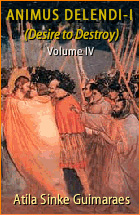 Volume IV |
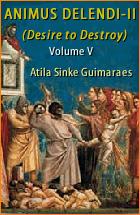 Volume V |
 Volume VI |
 Volume VII |
 Volume VIII |
 Volume IX |
 Volume X |
 Volume XI |
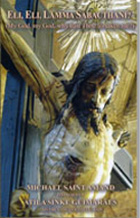 Special Edition |